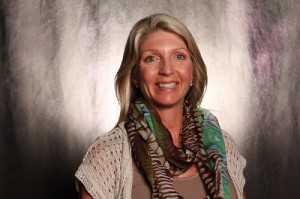Meeting Mentor Magazine
ConferenceDirect Solutions: Beth Hoffman
Taking Steps to Maximize Pick-up
 Every organization hopes for rapid growth. But, when it comes, it can bring unintended consequences.
Every organization hopes for rapid growth. But, when it comes, it can bring unintended consequences.
Take Beth Hoffman’s client, Zumba Fitness LLC. Founded in 2001, the fitness lifestyle brand started experiencing exponential growth about four years ago. That’s when Hoffman, ConferenceDirect’s director of global accounts and a Zumba participant, started to help the organization with its meeting requirements and attendance patterns for the annual U.S. convention in Orlando. It’s been a learning experience for both Zumba and Hoffman ever since…
The biggest issue to date emerged during the 2012 event at the Orange County Convention Center, which drew 6,500 instructor attendees from 78 countries. The huge excitement buzzing around the convention meant that demand was extremely high even before registration opened. This year’s annual sold out all three key hotels in the room block (with 3,500 peak room nights) within three days. However, that didn’t translate into 100 percent pick-up.
Here’s where the meeting went off the mark: Established hotel policies allowed attendees to reserve up to 10 rooms per credit card to ensure that fellow instructors could get accommodations. “This year, many of the attendees reserved multiple rooms,” said Hoffman. “A good share dropped within three weeks and up to 72 hours prior to the convention start, and we didn’t have a policy in place to prevent the fallout.”
Now they do.
Solution #1: Next year, one credit card can reserve up to three rooms only.
Solution #2: One night’s room rate and tax per reservation will be non-refundable.
Solution #3: Attendees who book within the block will receive a discount off meeting registration.
Solution #4: The ConferenceDirect housing system will be used to manage the block.
“The challenge with housing is to keep a close eye on it,” Hoffman noted. She tries to predict how registrants think and how to change bad reservation habits into good ones. “We know instructors won’t be happy with paying one non-refundable room night and tax, but we prefer to get gradual pick-up that’s solid, rather than fill all the hotels within three days and lose a good share of them when it’s too late.”
Zumba and Hoffman also made sure that the hotels, which are on multi-year contracts, did not accept reservations for 2013’s convention at the close of this year’s meeting. That’s an earlier lesson learned. At the 2011 convention, one property accepted bookings for 2012 from attendees as they were checking out. “It was upsetting when we got wind of that, so we made sure to tell all three hotels not to open 2013 reservations until they received official word from Zumba,” Hoffman said.
While the convention’s growth shows no flattening, Zumba has decided to put a ceiling on attendance in Orlando. Instructors responded to surveys that they didn’t want the convention to get much bigger. “They feel like a close family that looks forward to seeing each other year after year,” Hoffman explained. “If the meeting gets too big, it will lose its special flavor.”
However, to keep accommodating more instructors, Zumba is launching a West Coast convention next February 2013 that will somewhat mirror the Orlando convention, which will always be the “mother ship.” It will employ the same housing strategies and formula for room bookings. “We anticipate the first show, at the Los Angeles Convention Center, will be a third of the size of the recent Orlando convention — about 2,000 the first year,” she said. It expects to draw from western Canada, Mexico, the Pacific Rim and states west of the Mississippi.
But the show is launching as the pendulum has swung back to a seller’s market. It’s hard for Hoffman’s clients — especially corporations — to understand that the heady days of 2008 to 2010 are indeed gone. They’re still trying to place short-term meetings in a not-so-short-term world. So here are some best practices she follows with her clients:
Best Practice #1: Get requests for proposal out early. She helps clients educate their directors and vice presidents that in today’s market, dates and budgets need to be prepared sooner. She pointed to one large meeting that “any hotel would be happy to have,” but because of the popularity of the destination, the choices were slim, due to hotels already being booked solid over the same dates and month.
Best Practice #2: Stay on schedule. “I constantly work with my clients on timelines,” Hoffman noted. “They travel quite a bit, so we have routine, scheduled conference calls. My No. 1 priority is to keep the process moving forward and make sure everyone involved stays on track to meet deadlines.”
Best Practice #3: Focus the negotiation. Instead of eliciting six strong choices, an RFP may draw only three responses. To keep the hotel from feeling the outcome is a “slam dunk,” she tries to work in what the client brings to the table, while focusing on the “real hot buttons” for both sides. — Maxine Golding
Design by: Loewy Design